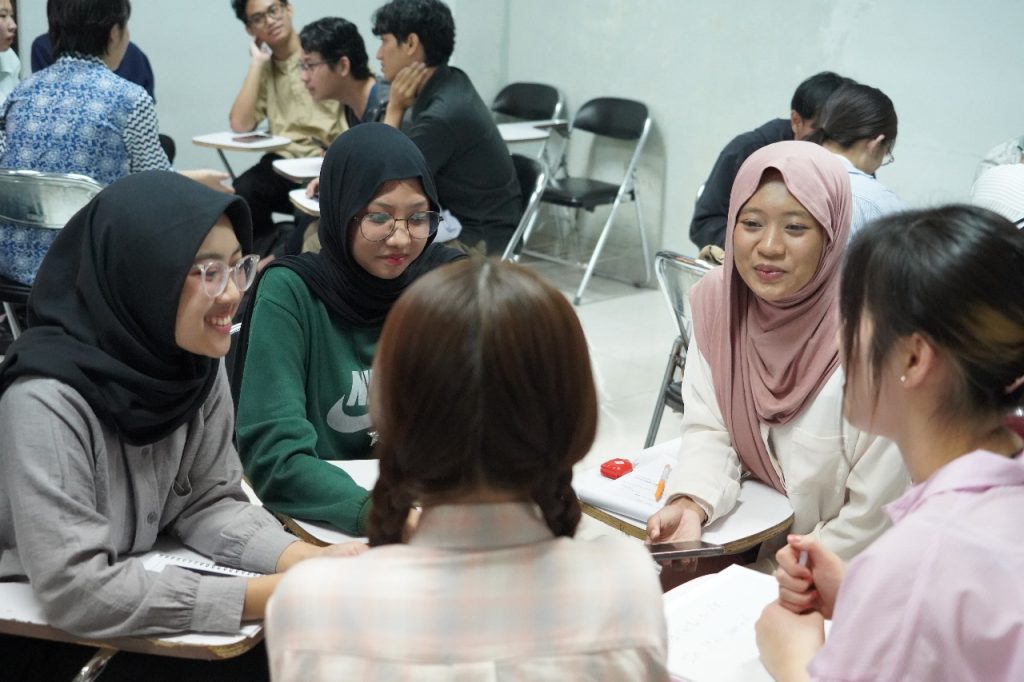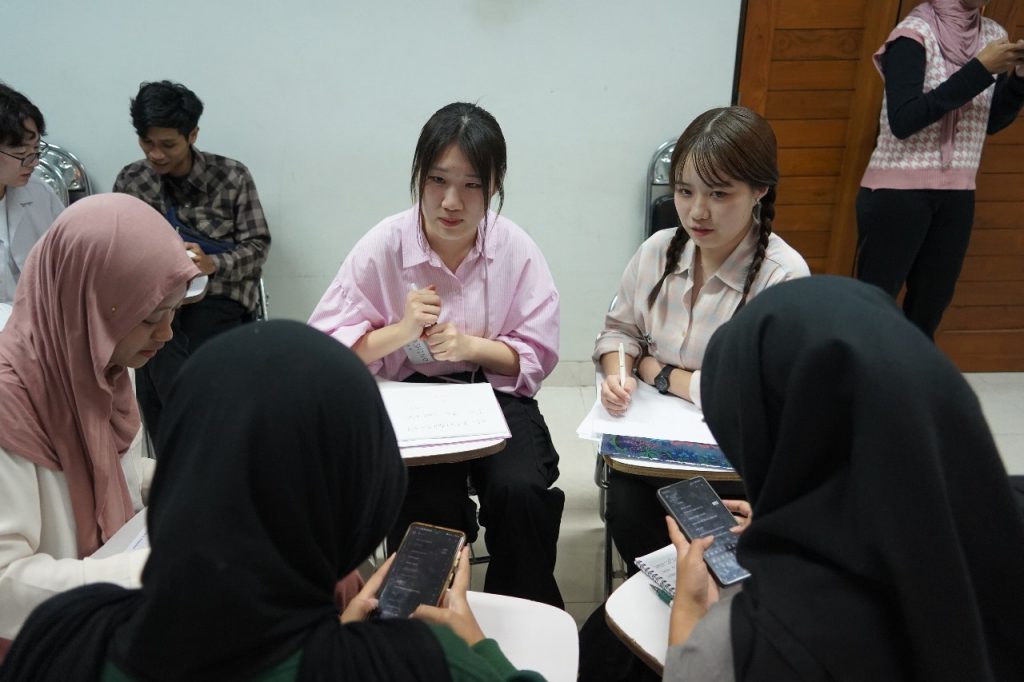
More than 70 students from various faculties at Universitas Gadjah Mada (UGM) attended the Japanese Class “Nihongo No Nakama” held at Rachmiwaty Building, Faculty of Agriculture UGM, from 27 February to 11 March, 2025. This activity also presents 16 students from Yamagata University, Japan from various faculties and batches as teachers in the Japanese class. In addition to in-class activities, the Japanese students can also experience learning outside the classroom, namely a visit to Borobudur Temple to know the history of one of the historical places in Indonesia.
During the Japanese class, participants learned about hiragana, the Japanese writing system. Not only that, for the next week the participants were also taught to know daily conversations using Japanese, precisely for introductions and greetings. The participants also received other additional materials about Japanese Culture and Knowledge. At the end of the Japanese Class meeting, there will be a farewell party as well as a cultural performance.
“Japanese Class is certainly very exciting, especially for those who are still beginners, they can join this class,” said Safa’Atin Cahyani who is familiarly called Safa, one of the Japanese class participants from the Agricultural Extension and Communication Study Program (2023) Faculty of Agriculture UGM. In addition, Safa also added a series of activities, “So, the class is divided into two groups, there is a hiragana group and daily conversation using Japanese.”

The whole series of Japanese Culture and Language introduction activities wrapped in Japanese Class certainly received a very enthusiastic and lively welcome from students in various faculties at UGM. This shows that the interest of UGM students related to Japanese Culture and Language is quite high. The existence of Japanese Class is one form of cooperation between Universitas Gadjah Mada and Yamagata University.
This Japanese class further demonstrates the Faculty’s commitment to supporting the success of the SDGs, especially in this Japanese class which shows SDG 1: No Poverty, SDG 2: No Hunger, SDG 4: Quality Education, SDG 10: Reduced Inequality, and SDG 17: Partnerships for the Goals.
Author : Muhamad Fathan Mubina
Editor : Desi Utami
Documentation : Media Faperta
